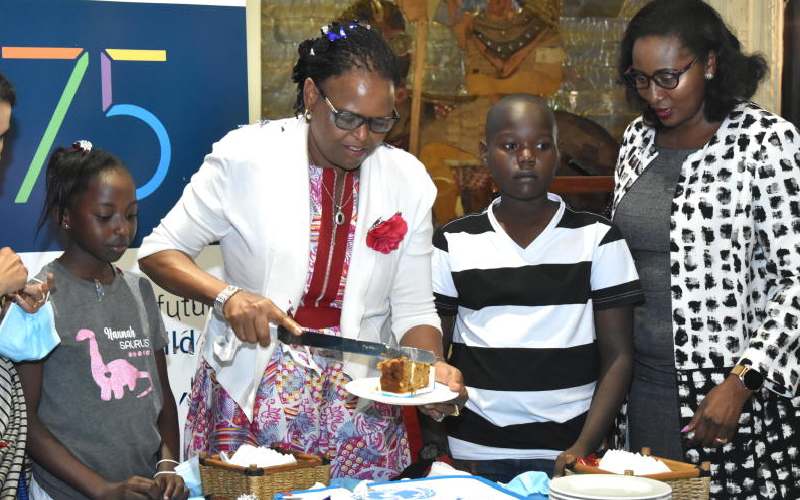
Chief Justice, Martha Koome with Chief Administrative Secretary, Public Service Beatrice Elachi and best kids in this year's UNICEF storytelling cutting cake to mark UNICEF 75th anniversary on November 17, 2021. [Samson Wire, Standard]
Today is World Children’s Day. It marks the anniversary of the UN Convention of the Rights of the Child, which has transformed children’s lives around the world. This year is also Unicef’s anniversary. We are 75 this year and have spent 50 years in Kenya. This is a significant time, but our mandate keeps us young. We exist for children: to help them survive and thrive, no matter who they are or where they live.